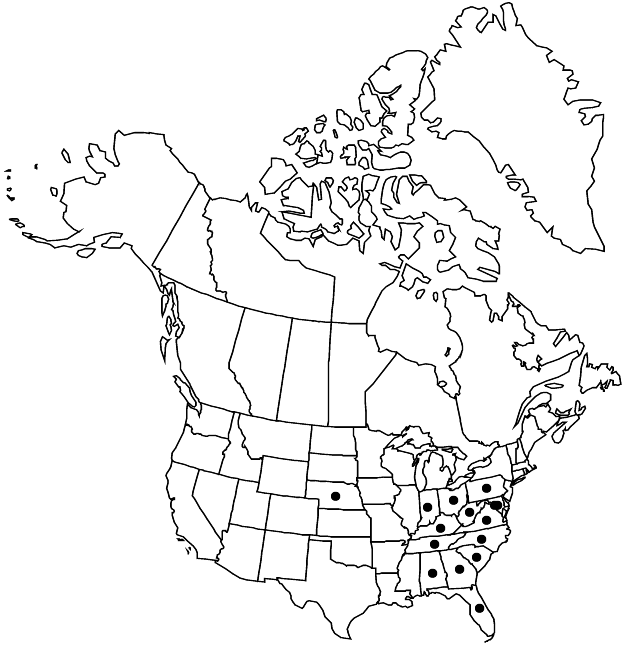Difference between revisions of "Stellaria pubera"
Fl. Bor.-Amer. 1: 273. 1803.
FNA>Volume Importer |
FNA>Volume Importer |
(No difference)
| |
Revision as of 20:07, 24 September 2019
Plants perennial, with stems loosely tufted, rhizomatous. Stems erect, branched, 4-sided, 10–40 cm, with alternating lines of spreading, soft, flexuous, mainly eglandular hairs. Leaves usually sessile (distal), often short-petiolate (proximal); blade elliptic, obovate, or lanceolate, widest at or beyond middle, 1–10 cm × 5–35 mm, base cuneate, margins entire, apex acute, glabrous to sparsely pubescent adaxially, ciliate on margins and abaxial midrib. Inflorescences terminal, 3–70-flowered cymes; bracts elliptic to lanceolate, 7–65 mm, herbaceous. Pedicels erect in flower, often deflexed at base in fruit, 5–40 mm, softly pubescent. Flowers (8–)10–12 mm diam.; sepals 5, with midrib, ovate, 3.5–6 mm, margins narrow, scarious, apex obtuse to acute, softly and often sparsely pubescent; petals 5, 4–8 mm, longer than sepals; stamens 10; styles 3, ascending, 2.5 mm. Capsules green to straw colored, broadly ovoid, 3.5–5.5 mm, ca. equaling sepals, apex obtuse, opening by 6 valves; carpophore absent. Seeds brown, obliquely reniform, 1.5–2 mm diam., coarsely sulcate-papillate. 2n = 30.
Phenology: Flowering spring.
Habitat: Rich deciduous woods, alluvial bottomlands
Elevation: 100-1000 m
Distribution

Ala., D.C., Fla., Ga., Ind., Ky., Md., Nebr., N.C., Ohio, Pa., S.C., Tenn., Va., W.Va.
Discussion
Stellaria pubera has been introduced in Nebraska and possibly in Illinois. It is very similar to S. corei but is distinguished by its shorter, more ovate sepals.
Selected References
None.
